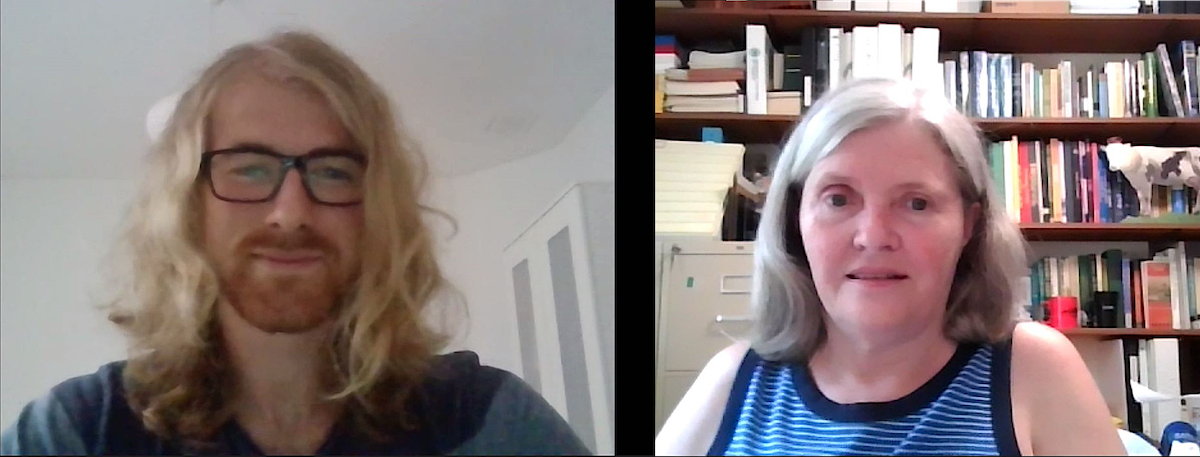Dr. Ann Wilkie expected to mentor an undergraduate student at a distance during the spring 2020 semester. The research professor of bioenergy and sustainable technology in the UF/IFAS Soil and Water Sciences Department had arranged to work with UF junior Lars Bjorndal during his semester abroad in Spain. However, neither expected how that experience of mentoring from afar would need to adapt when the COVID-19 pandemic became a factor.
Bjorndal, an electrical engineering major, started working with Wilkie after he joined the 2019‑20 CALS University Scholars Program (USP). He conducted research in her BioEnergy and Sustainable Technology (BEST) Lab during the summer and fall of 2019. They planned for Bjorndal to complete a research poster during the winter for the Undergraduate Research Symposium in April. He would also write a journal article on the project. They had planned to have regular videoconference check-in calls to talk about his progress.
“We arranged for weekly Zoom meetings just so I could check-in and let Dr. Wilkie know what I had accomplished,” Bjorndal said. “While the sessions achieved that, they were so much more.”
That was because, in mid-March, as the pandemic put Spain into a strict lockdown, the campus closed down. Having to self-isolate, he suddenly found himself not only in a foreign country without family and friends, but now also disconnected from the local social and cultural experiences he otherwise would have had. Bjorndal realized that the calls, originally planned as paced academic progress updates, were helping as one source of the personal connections he was abruptly denied.

Adjusting Plans
“Yes, we talked about the project, but we spent a good deal of the time talking about the real-world events going on in Spain for him and what I was seeing in Gainesville,” Wilkie added.
Wilkie, a native of Ireland, and Bjorndal, from Norway, also shared COVID-19 stories from friends and relatives in their respective homelands.
“This isolation made me realize the value of the personal contact that we take for granted and that those interactions are hard to recreate online,” Bjorndal said. “For me, being able to talk to and connect with my professor is important. We have a lot of similar interests, like protecting the environment and sustainable energy, so we have a good connection outside of the research,” Bjorndal said. “I plan to keep in contact with Dr. Wilkie after I graduate from UF.”
Wilkie agreed and said there were two aspects to mentoring from afar, which became even more important during the pandemic.
“The research project and getting the poster and article done were important, but it was just as important talking about this unprecedented event,” she explained. “Lars was isolated with just his roommate for several months, so in talking with him over Zoom I wanted to encourage him and support his well-being and, hopefully, keep his spirits up. It was important to chat with him about what he was experiencing during the pandemic.”
Lessons Learned
“Indeed, when mentoring students at a distance, it’s important to have the flexibility to adapt to the mentoring style and modality of the circumstances a student is experiencing during the mentoring period,” Wilkie said.
The two agreed their “mentoring model” worked well with setting weekly chat sessions; discussing work done over the past week and what to do for the week ahead; understanding there will be forces outside their control; and connecting on a personal level.
You can see the abstract, poster, and short presentation Bjorndal created for the virtual USP Research Symposium here: https://cur.aa.ufl.edu/2020/04/14/bjorndal-lars/
 0
0
